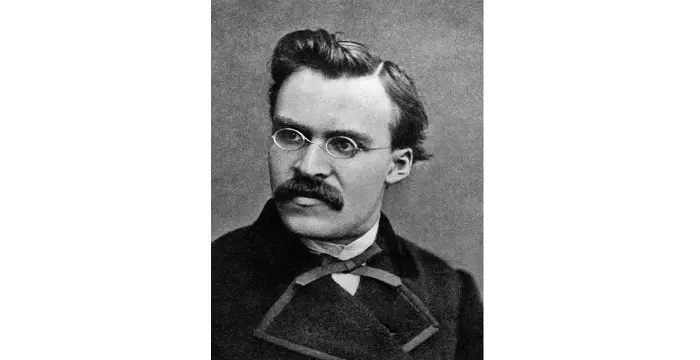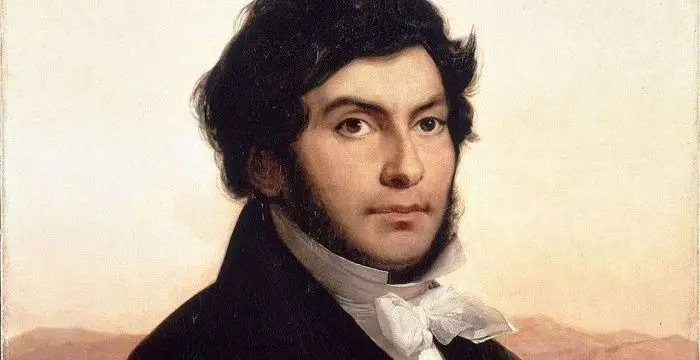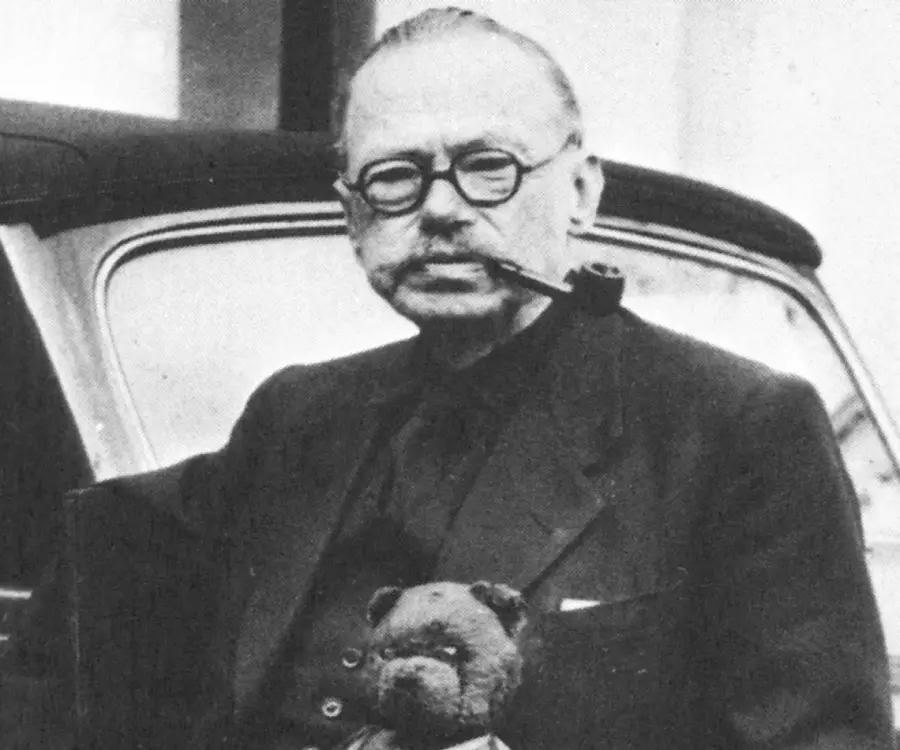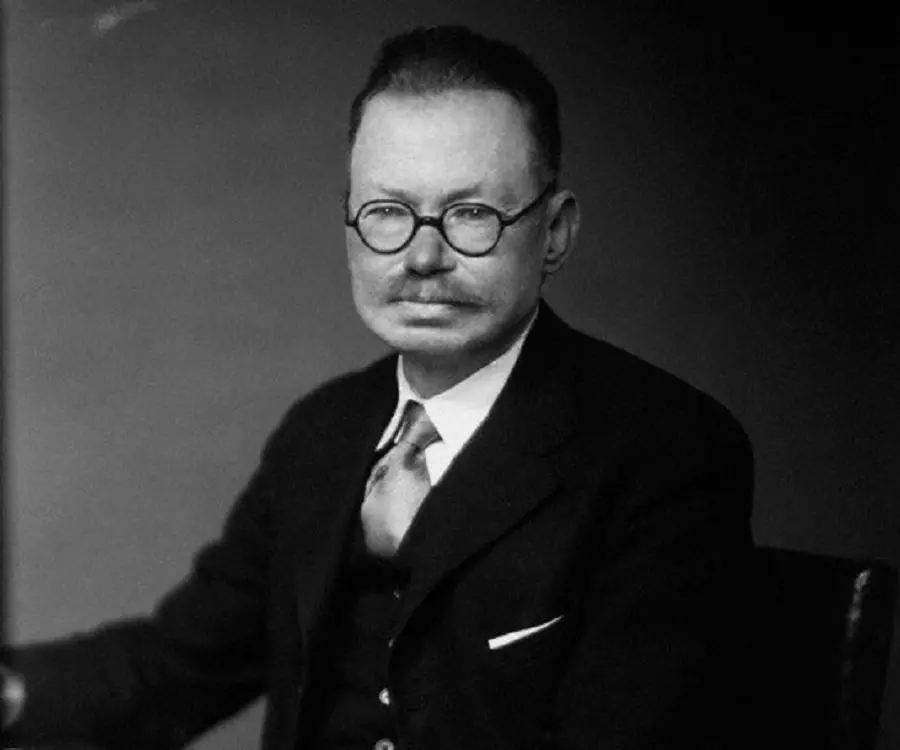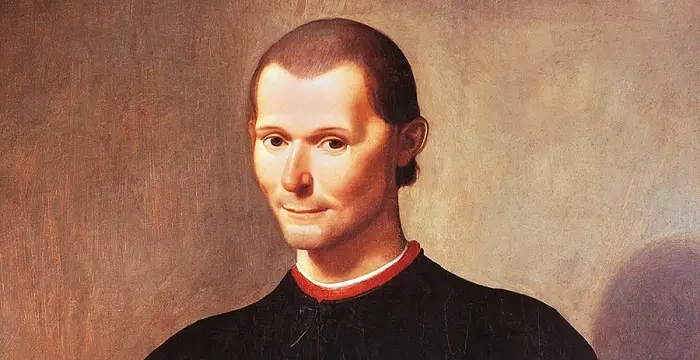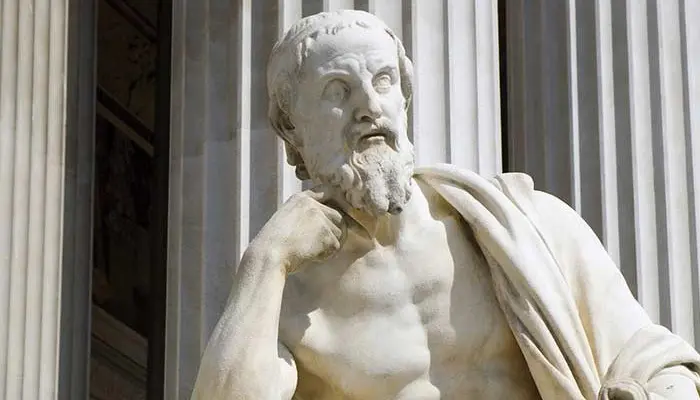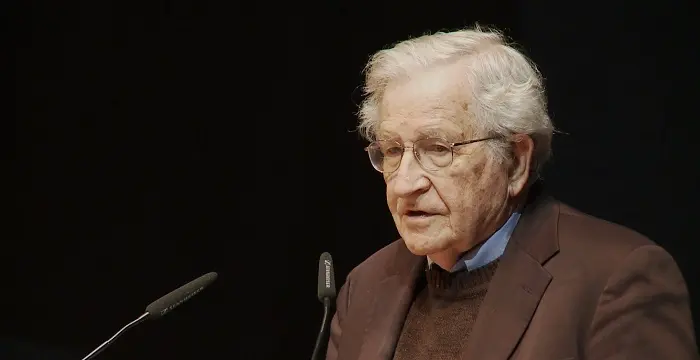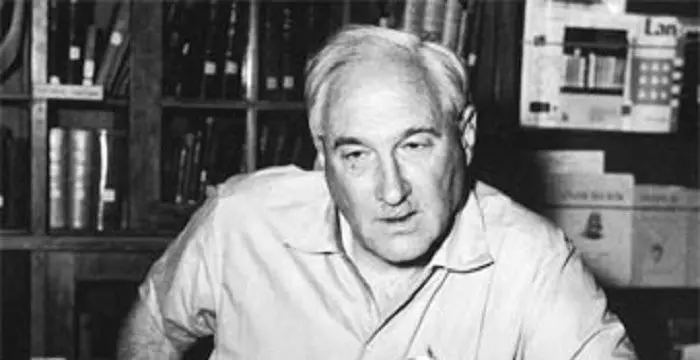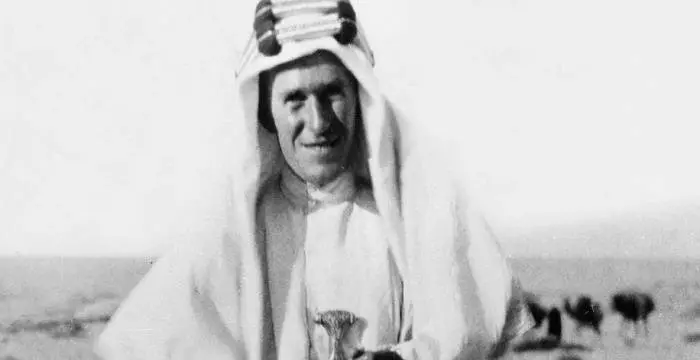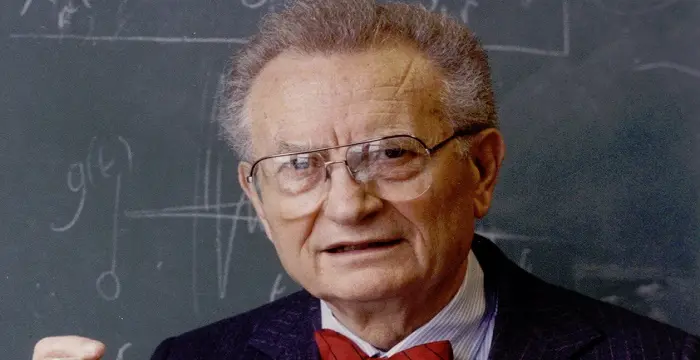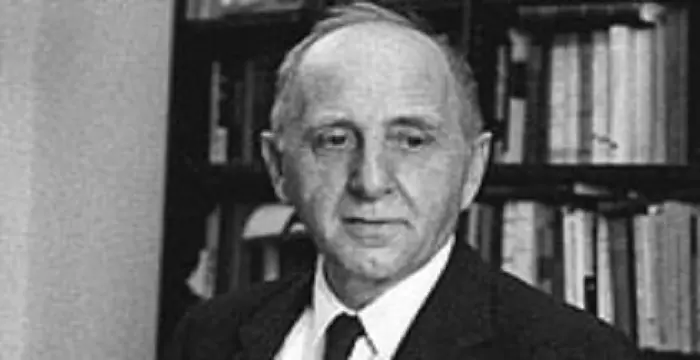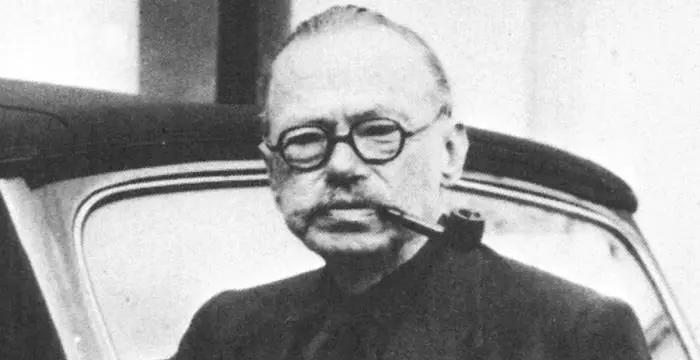
V. Gordon Childe - Philologist, Timeline and Personal Life
V. Gordon Childe's Personal Details
Vere Gordon Childe was an Australian historian, linguist and archaeologist
| Information | Detail |
|---|---|
| Birthday | April 14, 1892 |
| Died on | October 19, 1957 |
| Nationality | Australian |
| Famous | Intellectuals & Academics, Archaeologists, Historians, Philologist |
| Universities |
|
| Cause of death |
|
| Birth Place | Sydney |
| Gender | Male |
| Sun Sign | Aries |
| Born in | Sydney |
| Famous as | Archaeologist and Philologist |
| Died at Age | 65 |
// Famous Philologist
Friedrich Nietzsche
Friedrich Nietzsche was a famous 19th century German philosopher and philologist. Check out this biography to know about his childhood, family, life history and achievements.
Jean-François Champollion
Jean-François Champollion is best remembered till date for deciphering the Egyptian hieroglyphs and Rosette Stone. This biography provides detailed information about his childhood, life, achievements, works & timeline
V. Gordon Childe's photo
Who is V. Gordon Childe?
Vere Gordon Childe was an Australian historian, linguist and archeologist whose study of European prehistory of the 2nd and 3rd millennia BC helped historians greatly in understanding the relationship between Europe and Middle East. Gordon was born in Sydney, New South Wales, Australia to Rev. Stephen Henry and Harriet Eliza Childe. This was Stephen’s second marriage and thus, Gordon lived with five half-siblings from his father’s previous marriage. After some years of home schooling, he studied at the Sydney Church of England Grammar School and then went on to graduate from the University of Sydney. In college he proved to be an outstanding student and won several awards of merit, including the (Sir) Daniel Cooper graduate scholarship worth £200. With this scholarship he went to Queen’s College, Oxford University and earned his B.Litt. degree. At Oxford he became actively involved with the socialist movement and became a noted member of the left-wing reformist Oxford University Fabian Society. After the completion of his education, he went back to Australia and worked in a couple of institutions/universities, but was expelled or forced to resign owing to his political affiliations. After several unsuccessful stints, he became the first Abercromby professor of prehistoric archeology at the University of Edinburgh, a post established by deed poll at the bequest of prehistorian Lord John Abercromby
// Famous Historians
Niccolò Machiavelli
Niccolo Machiavelli was an Italian politician, historian and philosopher who is widely known as a founder of modern political science.
Herodotus
Herodotus was a Greek historian widely referred to as 'The Father of History'. This biography of Herodotus provides detailed information about his childhood, life, achievements, works & timeline.
Noam Chomsky
Chomsky is an American linguist, political theorist, and activist, often referred to as "the father of modern linguistics”. Check out this biography to know about his childhood, family life, achievements and other facts related to his life.
Childhood & Early Life
V. Gordon Childe was born on April 14, 1892 in Sydney, New South Wales and was the only surviving child of the Reverend Stephen Henry and Harriet Eliza Childe.
Stephen was a second-generation Anglican priest and his first wife was Mary Ellen Latchford. The family moved to Australia in 1878 where Mary died. Stephen then married Harriet in 1886 and the five children from his previous marriage became Gordon’s half-siblings.
Owing to his poor health as a child, he received his primary schooling at home before matriculating from the Sydney Church Of England Grammar School in 1910. Although he was a good student in school he was bullied because of his strange appearance and un-athletic physique.
His mother passed away in 1910 and his father married Monica Gardiner. The death of Gordon’s mother and the disagreements on subjects of religion and politics with his father left him lonely.
He graduated from the University of Sydney in 1914 with a B.A. and won the University Medal, Professor Francis Anderson’s prize for philosophy and the (Sir) Daniel Cooper graduate scholarship.
With the £200 Cooper scholarship, Gordon went to study at Queen’s College, Oxford University. He was awarded a B.Litt. in 1916 for research on Indo-European archaeology and next year obtained first-class honors in literae humaniores (humane letters).
Career
V. Gordon Childe returned to Australia in 1917 and a year later was accepted by the St. Andrew’s College as their Senior Resident Tutor. However, he was forced to resign by the Principal when he participated and spoke in the Third Inter-State Peace Conference.
Owing to his good academic record, the staff-members found work for him in the Department of Tutorial Classes, but the Chancellor, Sir William Cullen, cancelled his appointment fearing that he might preach socialism to the students. This infringement of Gordon’s civil rights was reported in the Australian Parliament by William McKell and T.J.Smith.
Gordon began teaching Latin at the Maryborough Grammar School (Queensland) in 1918, but resigned shortly as he was subjugated to harassment on the account of his (socialist) political affiliations.
In his desperate search of a job that would promise security and stability he became the private secretary and speech writer to centre-left politician John Storey in 1919. A year later, Storey became the state premier of New South Wales.
In 1921, Gordon went to London on Storey’s orders to update the British press about the developments in New South Wales. However, after Storey’s death the newly elected Premier, George Fuller, terminated Gordon’s employment in 1922.
V. Gordon Childe stayed back in London and spent much of his time studying at the British Museum and the Royal Anthropological Institute library. Soon he became known as an excellent pre-historian.
In 1922, he travelled to the Natural History Museum in Vienna, Austria, to examine unpublished material about the painted Neolithic pottery from Bukovina.
In 1923, he became a member of the Royal Anthropological Institute and two years later, its librarian. He also penned three books titled ‘How Labor Governs’, ‘The Dawn of European civilization’ and ‘The Aryans: A Study of Indo-European Origins’ in the 1920s.
In 1927, he became the first Abercromby professor of prehistoric archeology at the University of Edinburgh; a post established by deed poll in the bequest of prehistorian Lord John Abercromby.
From 1928 to 1930 he supervised the excavation of the Skara Brae Stone Village in the Orkney Islands, Scotland and unearthed a well-preserved Neolithic village. He published his findings in the book ‘Skara Brae’ but committed an error when he attributed the site to the Iron-Age.
He (along with other anthropologists) excavated two Iron Age hillforts in Berwickshire (1932), a promontory fort in Northern Ireland (1935), two vitrified Iron Age forts in Scotland (1933–37) and a Neolithic settlement in Rinyo (1938).
In 1946, he was elected as the Director and Professor of European Prehistory at the Institute of Archaeology (IOA) in London. In spite of being popular among students, his lecturing skills were considered poor.
V. Gordon Childe was invited to the U.S. on multiple occasions by renowned anthropologists and archaeologists like Robert Braidwood, William Strong and Leslie White to give lectures, but he was barred from entering the country on the basis of his socialist beliefs.
He retired from the post of IOA Director in 1956 (a year prematurely) and also donated most of his library and estate to the institution. It is believed that at that time he told his friends that he wished to go back to Australia, visit his relatives and then commit suicide.
Major Works
V. Gordon Childe is considered a trailblazer in the field of prehistory because he studied the religious, economic, legal, political, and sociological structures of primitive societies and linked them with the relevant studies in anthropology, geology, biology, zoology and paleontology. He became an early proponent of culture-historical archaeology and Marxist archaeology.
Awards & Achievements
In 1936, he was awarded an honorary doctorate of literature by Harvard and the next year, a doctorate of science by Pennsylvania State University. Also, he was appointed as a fellow of the Royal Anthropological Institute, the Society of Antiquaries of Scotland, and the British Academy.
He was awarded the Gold Medal of the Society of Antiquaries for his services to archaeology in 1956.
Personal Life & Legacy
On October 19, 1957 V. Gordon Childe fell 1000 feet to his death from the Govett’s Leap in Blackheath in the Blue Mountains. His remains were cremated at the Northern Suburbs Crematorium.
Before his death he had sent a letter to his friend, William Francis Grimes, and requested him not to open it till 1968. Upon opening the letter, it was found out that Gordon feared old age and was getting suicidal.
Although at the time of Gordon’s death the coroner ruled it as an accidental death, but the letter to Grimes and the finding of his hat, spectacles, pipe and Mackintosh at the site from where he fell to his death hint towards a pre-planned suicide.
// Famous Archaeologists
Louis Leakey
Louis Leakey was a Kenyan-British anthropologist who findings greatly altered conceptions about the origins and course of the evolution of human life. This biography gives detailed information about his childhood, life, achievements and timeline.
T. E. Lawrence
Thomas Edward Lawrence, also known as TE Shaw, was a British archeologist, scholar, writer, military officer, strategist, and diplomat. Check out this biography to know more about his childhood, family, personal life, etc.
V. Gordon Childe biography timelines
- // 1878 To 1886Stephen was a second-generation Anglican priest and his first wife was Mary Ellen Latchford. The family moved to Australia in 1878 where Mary died. Stephen then married Harriet in 1886 and the five children from his previous marriage became Gordon’s half-siblings.
- // 14th Apr 1892V. Gordon Childe was born on April 14, 1892 in Sydney, New South Wales and was the only surviving child of the Reverend Stephen Henry and Harriet Eliza Childe.
- // 1910Owing to his poor health as a child, he received his primary schooling at home before matriculating from the Sydney Church Of England Grammar School in 1910. Although he was a good student in school he was bullied because of his strange appearance and un-athletic physique.
- // 1910His mother passed away in 1910 and his father married Monica Gardiner. The death of Gordon’s mother and the disagreements on subjects of religion and politics with his father left him lonely.
- // 1914He graduated from the University of Sydney in 1914 with a B.A. and won the University Medal, Professor Francis Anderson’s prize for philosophy and the (Sir) Daniel Cooper graduate scholarship.
- // 1916With the £200 Cooper scholarship, Gordon went to study at Queen’s College, Oxford University. He was awarded a B.Litt. in 1916 for research on Indo-European archaeology and next year obtained first-class honors in literae humaniores (humane letters).
- // 1917V. Gordon Childe returned to Australia in 1917 and a year later was accepted by the St. Andrew’s College as their Senior Resident Tutor. However, he was forced to resign by the Principal when he participated and spoke in the Third Inter-State Peace Conference.
- // 1918Gordon began teaching Latin at the Maryborough Grammar School (Queensland) in 1918, but resigned shortly as he was subjugated to harassment on the account of his (socialist) political affiliations.
- // 1919In his desperate search of a job that would promise security and stability he became the private secretary and speech writer to centre-left politician John Storey in 1919. A year later, Storey became the state premier of New South Wales.
- // 1921 To 1922In 1921, Gordon went to London on Storey’s orders to update the British press about the developments in New South Wales. However, after Storey’s death the newly elected Premier, George Fuller, terminated Gordon’s employment in 1922.
- // 1922In 1922, he travelled to the Natural History Museum in Vienna, Austria, to examine unpublished material about the painted Neolithic pottery from Bukovina.
- // 1923In 1923, he became a member of the Royal Anthropological Institute and two years later, its librarian. He also penned three books titled ‘How Labor Governs’, ‘The Dawn of European civilization’ and ‘The Aryans: A Study of Indo-European Origins’ in the 1920s.
- // 1927In 1927, he became the first Abercromby professor of prehistoric archeology at the University of Edinburgh; a post established by deed poll in the bequest of prehistorian Lord John Abercromby.
- // 1928 To 1930From 1928 to 1930 he supervised the excavation of the Skara Brae Stone Village in the Orkney Islands, Scotland and unearthed a well-preserved Neolithic village. He published his findings in the book ‘Skara Brae’ but committed an error when he attributed the site to the Iron-Age.
- // 1932He (along with other anthropologists) excavated two Iron Age hillforts in Berwickshire (1932), a promontory fort in Northern Ireland (1935), two vitrified Iron Age forts in Scotland (1933–37) and a Neolithic settlement in Rinyo (1938).
- // 1936In 1936, he was awarded an honorary doctorate of literature by Harvard and the next year, a doctorate of science by Pennsylvania State University. Also, he was appointed as a fellow of the Royal Anthropological Institute, the Society of Antiquaries of Scotland, and the British Academy.
- // 1946In 1946, he was elected as the Director and Professor of European Prehistory at the Institute of Archaeology (IOA) in London. In spite of being popular among students, his lecturing skills were considered poor.
- // 1956He retired from the post of IOA Director in 1956 (a year prematurely) and also donated most of his library and estate to the institution. It is believed that at that time he told his friends that he wished to go back to Australia, visit his relatives and then commit suicide.
- // 1956He was awarded the Gold Medal of the Society of Antiquaries for his services to archaeology in 1956.
- // 19th Oct 1957On October 19, 1957 V. Gordon Childe fell 1000 feet to his death from the Govett’s Leap in Blackheath in the Blue Mountains. His remains were cremated at the Northern Suburbs Crematorium.
// Famous Intellectuals & Academics
Bertil Gotthard Ohlin
Bertil Gotthard Ohlin was a famous Swedish economist. This biography profiles his childhood, family life & achievements.
Emily Greene Balch
Emily Greene Balch was an American economist, sociologist and pacifist who won the 1946 Nobel Peace Prize. This biography of Emily Greene Balch provides detailed information about her childhood, life, achievements, works & timeline.
Martin Buber
One of the greatest philosophers to have ever walked on earth, Martin Buber contributions to philosophy is a long-standing one. Explore all about his profile, childhood, life and timeline here.
Paul Samuelson
Nobel laureate Paul Anthony Samuelson is referred to as the ‘Father of Modern Economics’. This biography profiles his childhood, life, career, achievements and interesting facts about him.
Lao Tzu (Laozi)
Lao Tzu was a legendary Chinese philosopher who wrote the important “Daodejing”. This biography profiles his childhood, life, career, achievements and timeline.
Simon Kuznets
Simon Kuznets was a noted Russian-American economist, statistician, demographer, and economic historian. Check out this biography to know about his childhood, family life, achievements and other facts related to his life.
V. Gordon Childe's FAQ
What is V. Gordon Childe birthday?
V. Gordon Childe was born at 1892-04-14
When was V. Gordon Childe died?
V. Gordon Childe was died at 1957-10-19
Where was V. Gordon Childe died?
V. Gordon Childe was died in Blue Mountains
Which age was V. Gordon Childe died?
V. Gordon Childe was died at age 65
Where is V. Gordon Childe's birth place?
V. Gordon Childe was born in Sydney
What is V. Gordon Childe nationalities?
V. Gordon Childe's nationalities is Australian
What was V. Gordon Childe universities?
V. Gordon Childe studied at University of Oxford, University of Sydney, Sydney Church of England Grammar School
What is V. Gordon Childe's cause of dead?
V. Gordon Childe dead because of Suicide
What is V. Gordon Childe's sun sign?
V. Gordon Childe is Aries
How famous is V. Gordon Childe?
V. Gordon Childe is famouse as Archaeologist and Philologist
